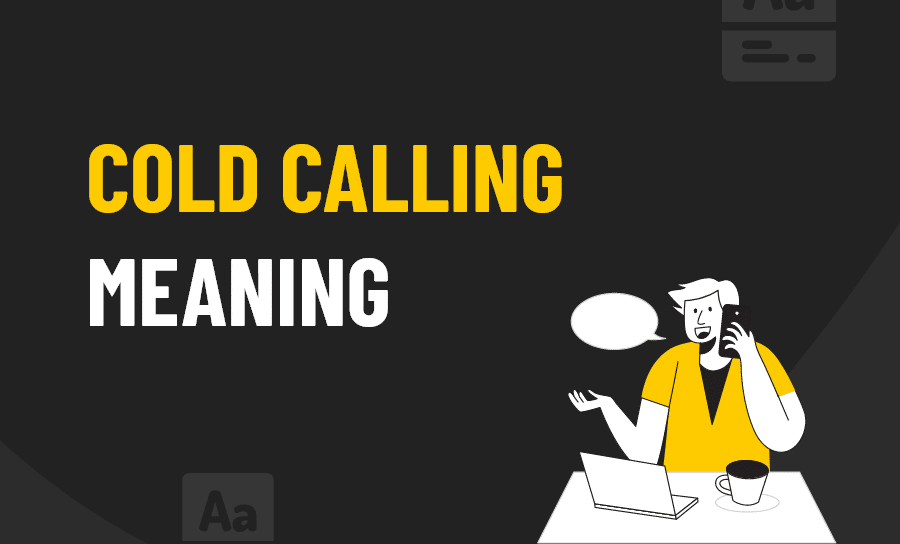
Source: Freight Waves
Cold calling is very well known from past experiences when everyone had a home line. You may have heard the phrase thrown around back then or even recently.
When the pandemic hit, a lot of jobs went remote or had to fire employees. It was widespread for cold calling to be a position people could take because it can be done anywhere.
Let’s break down the meaning of cold calling and why companies use this method.
Cold Calling Meaning
Cold Calling is the initial action (the call) that a salesperson makes without prior interaction with the customer. Sometimes you get calls from your dentists or doctor, and those don’t count.
The phrase “cold” refers to these two people (salesperson and customer) who have never spoken before. We will go more on some examples of cold calling later.
How does Cold Calling Work?

Source: Martech
Cold calling refers to solicitation by phone and within the realm of telemarketing. This technique is trying to get individuals to buy a product or service.
You’re probably thinking, “If I never spoke to this person, how do they have my phone number?”
Getting a person contact information can be done in numerous ways. There are software tools that purposely gather information from platforms like Linkedin. Many cold callers are given a list of numbers in the area or the company will use tools to find contacts with a common interest.
To recap, the companies gather a list of contact information through multiple techniques and have their salespeople call from that list. The salespeople calls the person (prospect) with a goal which can me to complete a survey, purchase an item, schedule a call, etc.
Why is it difficult?

Source: Ideascale
You might have heard people being very against cold calling or have been told about the negative reputation. Cold Calling isn’t anything shady or illegal, but the difficulty is what many people dislike.
Cold Callers have no prior interactions with who they are calling, so they have to be very skilled with trying to get people to not only stay on the phone but met their goals.
How often have you hung up or not even answered the phone because you didn’t know the person?
See, it is hard enough to get people to answer and keeping them on the phone is another thing. The challenge of cold calling gives this field a bad reputation, but many people excel at this job.
Cold Calling Example

Source: Industrial Scripts
Some well-known topics that can involve cold calling can be the tech of the finance industry. From there, pretty much anyone who wants to do a survey or sell a product can use cold calling.
Cold calling companies might have a script they prefer their callers to read from or use as a foundation.
Here is an example script:
Prospect: Hello?
Cold Caller: Hi, my name is Victor with ProjectX. Are you interested in booking a demo this week to learn more about our problem-solving software?
From there, the prospect could have hung up, say no, or express interest. Generally, the caller is trying to reveal the subject of the call in the beginning.
Sometimes the caller may ask, “How are you?” which I feel awkward, especially since you don’t know who you are talking to.
Is Cold Calling Effective?
According to duct tape marketing, “cold calling results in about a 1 – 3% success rate for getting an initial appointment.” The rate jumps up to 40% when the call is made with a referral.
A referral can be from current customers, someone in your network, or a strategic partner. Another thing to note is that a more researched contact list can help with effectiveness.
As I mentioned earlier, some companies might use a broad contact list full of people who don’t connect with the company. That does help you get more outreach, but the companies that research their audience get more results.
Final thoughts
Cold Calling has mixed results regarding people’s opinion about it, especially since it can be done in so many ways. Overall the company themselves have to develop a technique that works and train people to get the results they are looking for.






